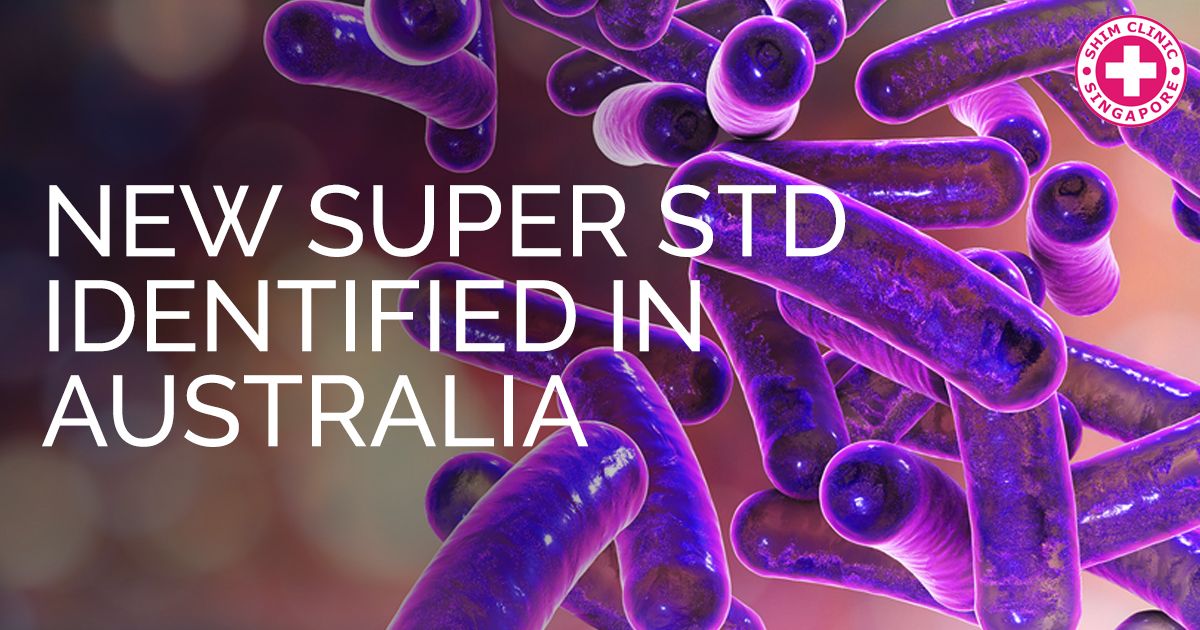In the final days of 2019, Australian clinicians sounded the alarm on a new super STD that has proven to be both highly contagious and incredibly difficult to treat. What’s even worse – the infection is also food-borne, meaning there are two possible dissemination mechanisms at play.
The New Super Infection: Mega Shigellosis
The super STD is called Shigellosis and it’s caused by the shigella bacteria.
Shigella is a very common culprit behind digestive issues like diarrhoea and stomach upset. Typically, this is a food-borne bacterium that affects approximately 500,000 people in the US per year. The new strain identified, however, is so contagious that it can spread through sexual contact. This is an expansion of the typical infection mechanism that involves the consumption of contaminated foods and beverages.
One of the riskiest things about the superbug is that people remain highly contagious even after weeks of their symptoms subsiding and disappearing. Having sexual contact during that period of time increases the likelihood of passing on the infection to a partner. According to research, cases of sexually transmitted Shigellosis are most common among men who have sex with men. Over the past few years, several outbreaks have been registered involving superbugs that are antibiotic-resistant.
Still, these past outbreaks could still be controlled through the use of at least one readily available oral administration medication. The new bug, however, is proving to be a much bigger challenge.
A report on the new bacterium was published in the reputable New England Journal of Medicine. Public health researchers at University of Melbourne in Australia have detected hundreds of infections with the superbug Shigella sonnei in the period from 2016 to 2018. This particular strain has proven to be 100 per cent resistant to all oral antibiotics and other recommended Shigellosis treatments. Upon further research, the clinicians in Australia identified a shigella subtype that seems to be spreading predominantly among men who have sex with men.
Shigellosis: Clinical Signs, Duration of the Infection and Treatment
Shigellosis is not a deadly disease. Even without antibiotics, the human body is capable of fighting off the infection in approximately one week. Sometimes, however, Shigellosis can lead to complications. Most infected individuals will experience fever, stomach cramps and diarrhoea. The symptoms become less severe in a couple of days but for some people (especially those who have a weakened immune response), the clinical signs could continue for up to four weeks.
The most common complications include dehydration, haemolytic uremic syndrome, toxic megacolon, reactive arthritis and seizures.
The new super shigella infection can still be treated through the intravenous administration of antibiotics. Because the bacterium is so highly resistant, however, patients have to be accepted for in-hospital treatment until the symptoms subside. Currently, doctors in Australia are recommended to flag all shigella infections and submit samples for lab testing. This way, the exact bacterial strain can be identified to determine just how extensive the propagation of the superbug is.
This isn’t the first outbreak of the superbug. Similar infections were identified in 2018 among gay and bisexual men in the US (San Diego County). Authorities reported 334 cases of the infection, the highest number registered over a period of 20 years. Of all infected individuals, 25 per cent were men who have sex with men.
Preventing Superbug Infections
In underdeveloped countries, Shigellosis is predominantly affecting children due to poor hygiene. In developed countries, however, infections are on the rise among adults due to the sexual transmission method. In Australia’s Victoria there were 171 documented cases of a sexually transmitted super infection with shigella. Prior to 2018, there were only a handful of such cases, researchers confirmed.
According to the research team, the particular shigella strain is so infectious that only a few bacteria will be sufficient to make a person really sick. Emphasising stellar personal hygiene and safe sex are of essence for the prevention of infection spread. Activities like rimming and fingering are to be avoided, Australian researchers warned, because these increase the risk of passing on the bacterium from one person to another.
Hand-washing and the use of condoms can both prevent the spread of shigella. Hence, Australian clinicians are pushing for awareness campaigns that shed more light on the risk and make the public better informed.
Those who have been diagnosed with Shigellosis should postpone all sexual activity until after two weeks without symptoms have passed. Even if a person is feeling perfectly healthy, they could still be highly contagious.
Shigella isn’t the only super STD on the loose right now. Various other bacteria have also mutated, contributing to more difficult and less effective treatment. In 2019, a super gonorrhoea outbreak in the US contributed to the hospitalisation of multiple individuals. In fact, gonorrhoea is the STD that poses the biggest treatment challenges due to the facts that various super strains that are completely antibiotic-resistant have been identified lately.
It’s imperative to practice safe sex and understand the risks stemming from the evolution and mutations of bacteria.
If you have questions about common STDs and their treatments, facilities like Shim Clinic in Singapore can provide you with the essential information. Our experts will take you through the risks, the best ways to protect yourself and to undergo regular STD testing.
Find out more about common STIs, prevention and treatment by contacting Shim Clinic now or visit us during our working hours every single day.

